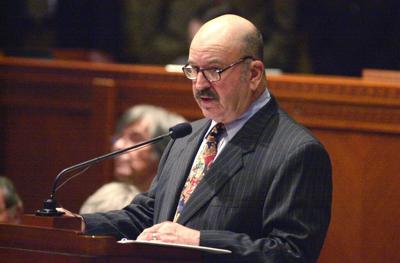For incoming Gov. Jeff Landry, the last Louisiana governor from his party offers a cautionary tale.
Particularly in a second term devoted to appealing to Republican presidential primary voters (spoiler alert: it didn’t), Bobby Jindal embraced policies that can only be described as hard-right. We all know how this worked out for him, and for the state.
But there’s another recent Republican governor whose approach provides Landry a more promising model as he prepares to take office in January.
Mike Foster burst onto the political scene nearly three decades ago, at a time when Louisiana still sometimes elected Democrats but was already evolving into a solidly red state.
In mounting a come-from-nowhere campaign against much better-known opponents, Foster sold himself as a plain-spoken, gun-toting religious conservative. Entering office, it was easy to expect that he’d govern almost exclusively from the right — and his early executive order ending affirmative action in state hiring cemented the impression.
Foster also got off to an antagonistic start with the state’s largest Democratic city, New Orleans. During the campaign, when discussing the topic of crime, he referred to the city as a “jungle,” a word that he said was not intended to be racist but was widely perceived that way.
But while this is where Foster started, it’s not where he ended.
He never wavered from some core conservative agenda items, such as the business community’s love of legal tort reform and his own quirky libertarian priorities, including the right to ride a motorcycle without a helmet. But in many other ways, he governed as a pragmatist.
It helped that from the get-go, he hired a talented staff that brought diverse viewpoints into the mix.
And over time — and unlike Jindal, his onetime protégé — Foster moved to more fairly distribute the tax burden and fund top public-sector priorities, even if that approach was not one he telegraphed as a candidate.
Over his eight years in office, Foster invested in education, both at the K-12 and higher ed level, including community and technical colleges. He championed the Stelly Plan that eliminated state sales taxes on necessities that eat a larger proportion of lower-income residents’ budgets, coupled with modest — and since-dismantled — income tax increases for better-off residents.
And despite his early rough going with New Orleans, he wound up being a productive partner to the city. Among other things, he backed a long list of New Orleans-based projects: packages to keep the Saints from leaving and to attract the NBA’s Hornets from Charlotte; expansion of the Ernest N. Morial Convention Center; a deal to get Harrah's Casino out of bankruptcy (despite his earlier opposition to gambling).
Of course, there are significant differences between the late former governor and the incoming one.
Foster, who’d been a state senator, was a Democrat until he qualified for governor and publicly lunged to the right. Landry, a former congressman and current attorney general, has been a highly partisan GOP politician all along.
But that doesn’t matter now that a Landry administration is about to become reality.
If Landry makes the wise decision to emulate Foster, the obvious place to start is to lower the temperature with New Orleans.
So far, Landry has indicated he’ll do the opposite. During his campaign, he often bashed the city’s handling of its crime problem, both from the mayor’s end and the district attorney’s. As governor-elect, he’s alarmed many local leaders by creating a transition council focused on the city, led by a wealthy Republican donor, Boysie Bollinger. Denials notwithstanding, the vibe is distinctly adversarial, as it was back in Foster’s early days.
It doesn’t have to stay that way. Landry can still reach out and include city leaders on the yet-to-be-announced transition council’s roster, and offer to be a genuine partner in making New Orleans safer and more economically vibrant, goals that know no party.
He even has some existing common ground with Mayor LaToya Cantrell, she recently pointed out: Both are on record as wanting the federal civil rights consent decree over the New Orleans Police Department to end, even if Landry’s more concerned by federal overreach and Cantrell with the cost to the city. That shared goal could be a start — one that really sets a different tone for Landry’s time in office.
And if he needs any more incentive to head down this path as opposed to the other, Landry might want to consider how voters judged his predecessors' records.
Foster left office with an enviable 62% approval rating. That’s about 40 points higher than the last Louisiana GOP governor who governed as an ideologue.

